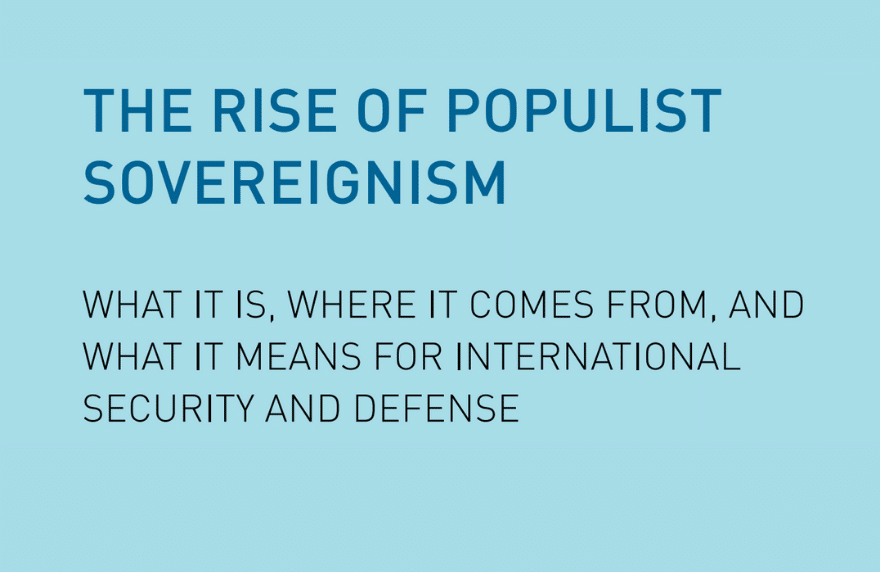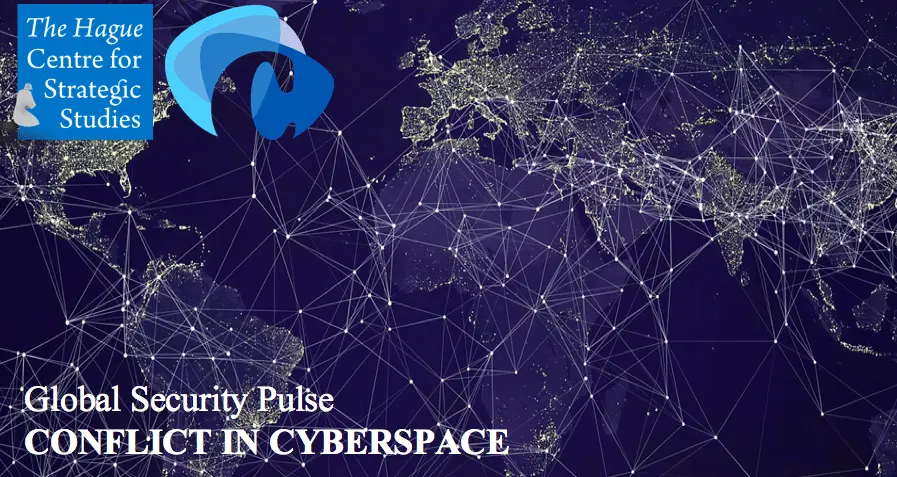Research
This study looks at the foreign and security policies of 17 Populist Sovereignist political parties and analyzes the implications for international security and defense.
Populist Sovereignism (PopSov) did not begin with Brexit nor did it end with Marine Le Pen losing the French Presidential election in May 2017. PopSov Parties reject the current political establishment and advocate taking back national control. They are far from a fringe movement. Currently, populist sovereignist parties rule alone or are part of the governing coalitions in 8 countries, including the US, and they hold more than 10 percent of a total of 11 countries’ seats in the European Parliament.
Consequences: risky business or a healthy feedback signal?
Many observers warn that PopSov parties threaten to upend a decades old liberal consensus about the benefits of free trade in promoting economic growth and welfare, the importance of global and regional governance to solve transnational challenges, and the benefits of liberal democracy. Threats – and actions – to exit the European Union, leave NATO, and dissolve free trade agreements certainly sound like the death toll of that consensus.
Stephan De Spiegeleire, one of the authors of the study argues that Popsovism is best framed as ‘a potentially healthy feedback signal about certain negative aspects of the recent rush towards a supposed global liberal utopia that have been underestimated by national, European, and international policymakers.’ But he also adds a note of caution: ‘the health of a democracy depends on such signals being voiced and – even more importantly – heard.’
Foreign and security policies: what PopSov parties want
In order to better understand the potential consequences for the international order, the authors analyzed the party manifestos of 17 PopSov parties in Europe and the US and identified their positions on national security and foreign and security policy. Amongst the key findings are:
- PopSov Parties are not illiberal per se, and they are not necessarily isolationist. Yet, their proposed reforms at times sit uncomfortably with the tenets of liberal democracy, in particular where it concerns protections for minorities.
- Popsov Parties are strongly in favour of reasserting the sovereignty of the nation-state by reducing the power of international organizations and push back against a decades-old trend of increasing multilateral cooperation through strong, rules-based institutions.
- Most PopSov Parties support NATO, but most are also supportive of warm relations with Russia. With the exception of 1, all parties want to significantly boost military and defense capabilities over current levels.
On the basis of a scenario analysis, the report offers four recommendations to policymakers in nation states and the EU:
- Foreign and Security Policy Starts at Home. The real center of gravity of PopSovism is not formed by the political strongmen and -women who are spearheading them, but by those parts of our societies that are and/or feel left behind by technological change and globalization. The social contract between state and society must be restored by getting domestic policies ‘right’ for all constituencies.
- Resist Knee-Jerk Reactions and Address Legitimate Grievances. Instead of dismissing the concerns of PopSov supporters as backwards or unfounded, policymakers should get better at parsing fact from fiction and legitimate from contrived grievance and – most importantly – at addressing both.
- Give Democracy a Chance. Recent developments in the US and in various European countries show the resilience of the more traditional democratic model.
- Develop Homeland Defense and Bolster Resilience. Societal, economical and political resilience is crucial. Aspects that may require specific and increased attention by defense and security organizations lie less in the realm of the ‘agents of conflict’ (’the enemy’) than in the realm of the ‘agents of resilience.’
Dutch foreign policies and the EU
With respect to Dutch foreign policies, the report concludes that its interests can best be upheld (ironically) through the vehicle of the European Union. The US is distancing itself from Europe, and the Dutch relationship with Russia is likely to remain difficult: there will be few alternatives but to pursue an even more proactive position in the European Union.







